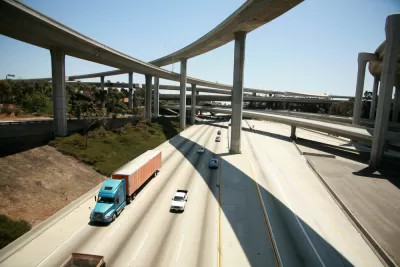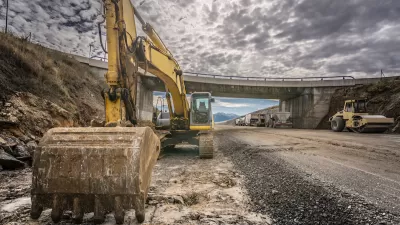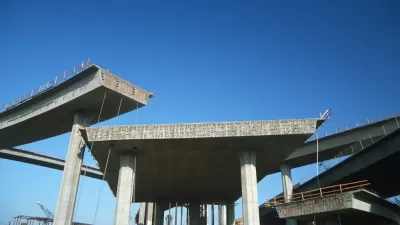The tide may be turning—albeit slowly—against new road construction and expansion in favor of more climate-friendly alternatives.

While many transportation agencies continue to expand highways, some major cities are shifting away from building more roads, bucking decades of car-centric planning. As Jared Brey reports in Governing, a few isolated cases are raising hopes that highway expansion will no longer be the status quo.
In Denver, a new rule from the Colorado Department of Transportation requiring metro areas to measure their greenhouse gas emissions prompted the Denver Regional Council of Governments (DRCOG) to reconsider plans to expand Interstate 25, opting instead to “focus on safety and traffic flow improvements over making the road bigger.”
Another notorious project, the proposed expansion of the 710 corridor in Los Angeles—a key route from the ports of Los Angeles and Long Beach to distribution centers—was officially canceled this May after decades of activism from local communities who experienced harmful health effects. According to the article, “Community groups created their own alternative plan for the 710 freeway, which focused on clean-energy transport of goods, public transit, bicycle and pedestrian infrastructure, improvements to the L.A. River — and no new general-purpose traffic lanes.”
Unfortunately, Brey points out that Denver and L.A. are still exceptions to the rule, and billions in federal infrastructure funding are still being funneled to road expansion projects around the country. Planetizen recently highlighted the annual Highway Boondoggles report, which details some of the biggest and most wasteful highway expansion and construction projects in the nation.
FULL STORY: Why Denver and L.A. Are Backing Away from Highway Expansions

Alabama: Trump Terminates Settlements for Black Communities Harmed By Raw Sewage
Trump deemed the landmark civil rights agreement “illegal DEI and environmental justice policy.”

Study: Maui’s Plan to Convert Vacation Rentals to Long-Term Housing Could Cause Nearly $1 Billion Economic Loss
The plan would reduce visitor accommodation by 25% resulting in 1,900 jobs lost.

Why Should We Subsidize Public Transportation?
Many public transit agencies face financial stress due to rising costs, declining fare revenue, and declining subsidies. Transit advocates must provide a strong business case for increasing public transit funding.

Paris Bike Boom Leads to Steep Drop in Air Pollution
The French city’s air quality has improved dramatically in the past 20 years, coinciding with a growth in cycling.

Why Housing Costs More to Build in California Than in Texas
Hard costs like labor and materials combined with ‘soft’ costs such as permitting make building in the San Francisco Bay Area almost three times as costly as in Texas cities.

San Diego County Sees a Rise in Urban Coyotes
San Diego County experiences a rise in urban coyotes, as sightings become prevalent throughout its urban neighbourhoods and surrounding areas.
Urban Design for Planners 1: Software Tools
This six-course series explores essential urban design concepts using open source software and equips planners with the tools they need to participate fully in the urban design process.
Planning for Universal Design
Learn the tools for implementing Universal Design in planning regulations.
Smith Gee Studio
Alamo Area Metropolitan Planning Organization
City of Santa Clarita
Institute for Housing and Urban Development Studies (IHS)
City of Grandview
Harvard GSD Executive Education
Toledo-Lucas County Plan Commissions
Salt Lake City
NYU Wagner Graduate School of Public Service





























